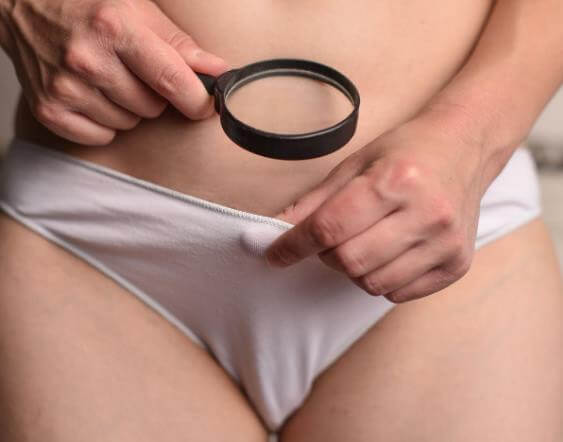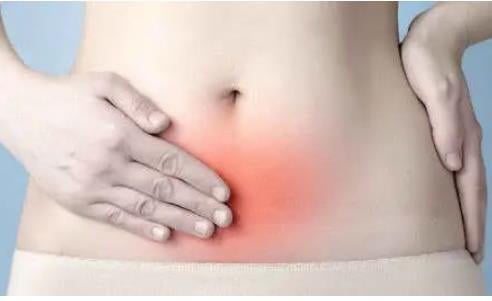Walt Disney once said, “Growing old is mandatory while growing up is optional.”
Private parts, which some call the external genitals, are among the most sensitive parts of the body. It is important we take care of them as we grow old. These intimate areas mainly function for sexual pleasure, reproduction, and excretion. Though these parts may appear differently in men and women, we both see them as things to cover with underwear for privacy or societal norms. The males’ external genitals are the penis, scrotum, and anus, while the females’ are the breasts, anus, and vulva. The vulva includes the labia, vaginal opening, and clitoris, which are visible on the outer skin of the female’s private parts. However, yours may look darker than the rest of your body and make you wonder. In contrast to your fears, what you have observed down there has no deleterious medical condition. Read on to know more about why your private parts are darker than the rest of your body.
The reasons why your private part is darker

Having darker private parts is normal, and this condition has no significant medical complications. However, discoloration of the private parts occurs as we age. It is more glaring to discover if you are light-skinned than people with dark skin.
Dark-complexioned people may also have different shades of their skin in certain areas, but it’s not as visible as other skin. However, if you discover you have pigmentation abnormalities in the skin around your private parts, consult your skin-care specialist or dermatologist for appropriate prescriptions. A dark skin pigmentation disorder is also known as
hyperpigmentation
in the skin around your private parts.¹ This condition occurs mainly when your body produces extra melanin cells because of some factors.
The factors that trigger skin pigmentation disorder around private parts
Damaged cells

One of the factors responsible for hyperpigmentation is mitochondrial DNA mutations or DNA damage. This occurrence is a result of unhealthy cells which produce melanin excessively and turns out to be discoloration. This may first appear to be a brownish color before it turns to black. Cells in the skin around the private parts die due to sunlight exposure which may be during beach time-out or other events.
The UV rays
from the sun destroy the outer part of the surface which affects the cells.²
Additionally, other causes of DNA damage are unhealthy lifestyles and diets. Therefore, avoiding foods and lifestyles that can trigger severe skin conditions that make your private parts darker is expedient.
Hormonal Changes
Hormones are among the causes of darker skin. These are most common in women. Rest assured there are different hormonal factors:
1. Pregnancy hormones

Pregnancy can cause hormonal changes which make the private parts of women to be darker. This condition occurs as a result of an increase in
melanogenesis
.³ However, it causes the skin around your vulva to be highly darker than other parts of the body.
Where there are higher releases of estrogen levels, the private parts of a pregnant woman become extremely discolored. This condition is known as melasma, the mask of pregnancy. Nevertheless, this is not dangerous to the mother’s health and pregnancy, but it can create anxiety and trauma. Consult your healthcare provider immediately to know what to do about this condition.
2. Puberty

Puberty is another reason why your private parts may be darker than the other part of your body. During this period, pigmentation changes occur with a high level of estrogen. These estrogens cause high production of melanin, the pigment known for the cause of skin and hair color, and affect the private parts. In addition, certain estrogen pills or supplements can trigger melanocytes, the cell that produces melanin in the private parts.⁴ It is expedient you avoid taking what can increase the estrogen level in your body.
Aging process
The aging process of the skin of your private parts may also trigger pigmentation. Signs like mottled pigmentation (
senile lentigo)
and melasma are the validations of aging that may populate your skin.
5
Therefore, the genital areas become drier, thicker, and thinner due to little blood flowing toward the southern region. It is also essential to know that your private parts might have accumulated a lot of senescent cells, which may also contribute to the excess skin-aging pigmentation.
Friction
Excess friction can cause discoloration
of the skin around your private parts. Friction can occur due to several reasons like having sexual intercourse, scratching, tight clothing, and an uncomfortable sitting position. Therefore, this condition may result in unbearable inflammation that triggers high levels of melanocyte hyperactivity.
Health conditions

Health conditions like vulvovaginitis, folliculitis, acne, diabetes, burns, eczema, ingrown hairs, or
Polycystic Ovary Syndrome (PCOS)
can also cause pigmentation disorders in your private parts. Your skin becomes swollen and darker at the same time.
6
Read more about how women with
PCOS
can remove their hair.
Tight clothing
The way you cover your genitals can also determine the darkening that changes their color. The tight coverings you put on will allow the inflammation to occur on the skin, triggering the excess production of melanin in the private areas. Because of the accumulation of moisture down there, the stuffy region becomes hyperpigmentation.
Sweating

Frequent sweating due to tight undies is another reason that can make your southern region a bit darker. Sweat contains some chemicals that will not only change the texture of your skin but also discolor your private areas. Indeed, the location of private parts makes it easier for frequent sweat to affect the area for an extended period and cause hyperpigmentation.
Pubic Hair Removal
Discoloration of your private parts can occur through the way you remove hair from your
pubic area
. Hair removal methods like shaving, waxing, plucking, and depilatory creams are not good enough for your private parts. They tend to cause skin irritation and hyperpigmentation in the intimate area. Sometimes, shaving or waxing can trap a hair follicle in the skin and cause ingrown hair which is not good for the health of your skin.
What is the next thing?
After considering all the factors that could cause your darker private parts, it is essential to know that discoloration can also be hereditary in some people. However, none of these factors has a medical condition attached to them, except skin infections. Hopefully, there are some procedures you can leverage to avoid discoloration of your private parts. In addition, these procedures can help you lighten up the skin of your private parts.
Organic Ingredients: One of these procedures is using
organic ingredients
like aloe vera, potatoes, turmeric, essential oils, papaya, lemon, yogurt, and milk.
Airy Clothing: Consider putting on airy clothing or underwear to keep your intimate areas well-ventilated and to reduce the occurrence of discoloration.
Laser Hair Removal: Also consider using laser hair removal to get rid of the hair in your pubic region. This light-pulsed laser hair removal procedure will target every hair follicle in your skin that might cause pigmentation later.
7
Private part cleaning: Clean your private parts always to prevent chemicals and any harmful substances as a result of frequent sweating. Also, know that your commitment to cleaning the genitals will help the private parts to be healthy. More so, intense rubbing of your private parts can cause skin irritation and other skin conditions. Therefore avoid rubbing it violently when cleaning these intimate areas. This will reduce the level of melanin production that may trigger hyperpigmentation due to friction. In addition, you should avoid soaps and cosmetics that are dangerous to the private parts and ensure you maintain a healthy lifestyle.
Balanced Diets: A balanced diet will help nourish your skin and reduce the level of pigmentation that may build up as you age.
Overall, you must consult a professional dermatologist or healthcare provider to know the most suitable solution for your skin or lighten up your private parts. In addition, don’t try self-medication or treatment of the darker color so that it won’t result in more severe skin conditions.
FAQ
What is laser hair removal?

Laser hair removal is a procedure for removing and destroying the hair follicles in the skin with intense pulsed light. This hair removal procedure works by using concentrated beams of light to destroy the pigments that produce hair in the cells.
It’s important to note that laser hair removal is more effective for individuals
with dark hair and light skin than other methods of removing hair.
Is laser hair removal procedure safe to remove pubic hair?
According to the Food and Drug Administration, laser hair removal is the safest procedure to long-lastingly remove hair from the skin. Though it takes some sessions, it is more effective than other methods. Therefore, knowing that only a professional dermatologist or healthcare provider can perform this operation is essential.
Although there are some
handy IPL
you can use to remove the hair yourself, ensure you learn the techniques before using them.
Are natural ingredients safe for lightening the private parts?
Yes, natural ingredients are safe to lighten up your private parts. These ingredients contain some anti-pigment properties. If properly applied, they help reduce the pigmentation in your private parts and renew the skin without any side effects. However, there are steps and cautions that go with their usage. You should consult your skin care specialist to guide you on the dosage of these organic ingredients.
References
1. Hyperpigmentation Therapy: A Review Seemal R. Desai
https://www.ncbi.nlm.nih.gov/pmc/articles/PMC4142815/
2. Vulvar lesion mimicking vitiligo: A case report Author links open overlay panel Paula Gutierrez
https://www.sciencedirect.com/science/article/pii/S2214911220300643
3. Beauvericin inhibits melanogenesis by regulating cAMP/PKA/CREB and LXR-α/p38 MAPK–mediated pathways by Seung Eun Lee,
https://www.nature.com/articles/s41598-018-33352-8
4. Vulvovaginal Health
https://www.acog.org/womens-health/faqs/vulvovaginal-health
5. Senile Lentigo – Cosmetic or Medical Issue of the Elderly Population by Mirnam Situm
https://www.researchgate.net/publication/49818819
6. Polycystic ovarian syndrome and the skin By Kristina Liu, MD, MHS, and Janelle Nassim, MD
https://www.health.harvard.edu/blog/polycystic-ovarian-syndrome-and-the-skin-2021042925527
7. 5 Best And Most Effective Laser Hair Removal Devices for Your Neck In 2023
https://blog.ulike.com/best-laser-hair-removal-device-for-neck

 By myulikeadmin
By myulikeadmin



